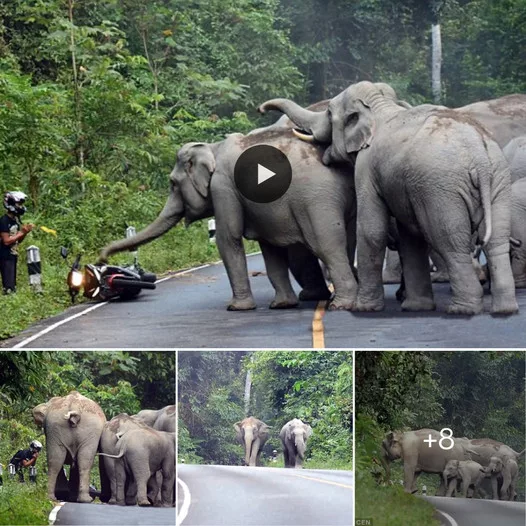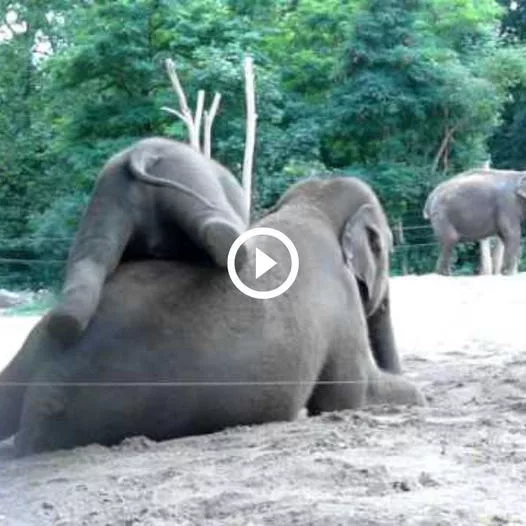The Intense Reaction of Rescued Elephants to the Scent of Wild Elephants
Elephants are highly intelligent and social animals that rely on scent communication to navigate their environment and maintain social bonds. They have a strong sense of smell, and are capable of detecting scents from miles away. A recent study has shown that rescued elephants, who have spent a significant amount of time in human care, have an intense reaction to the scent of wild elephants.

Researchers at the Wildlife SOS Elephant Conservation and Care Center in India conducted an experiment to observe the behavior of rescued elephants when exposed to the scent of wild elephants. The results were astounding.
The researchers presented two types of scents to the rescued elephants – one from the glands of wild elephants and the other a control scent. The rescued elephants showed a heightened interest in the scent of wild elephants, often sniffing and investigating the source of the scent. They also displayed a range of behaviors such as trumpeting, vocalizing, and even running towards the scent.

This intense reaction of rescued elephants to the scent of their wild counterparts highlights the importance of scent communication in their social lives. Elephants use scent to recognize their family and friends, locate water and food sources, and navigate through their habitat. They also use scent to communicate with other elephants, especially during mating season.
The study also suggests that rescued elephants may retain some of their natural instincts and behaviors despite spending significant time in human care. This means that it is possible to reintroduce rescued elephants back into the wild, as they are still able to communicate and interact with their wild counterparts.
However, reintroducing rescued elephants back into the wild is a complex process that requires careful planning and management. One of the biggest challenges is the loss of their social skills, which they would have learned from their mothers and other elephants in their natural environment. They also face the risk of poaching, human-elephant conflict, and habitat destruction.
Therefore, it is important to protect and preserve wild elephant populations and their habitat. This can be achieved through measures such as creating protected areas, promoting sustainable land use practices, and reducing human-elephant conflict through education and community involvement.
In addition to protecting wild elephants, it is also important to consider the welfare of rescued elephants who have spent significant time in human care. These elephants may still retain some of their natural instincts and behaviors, as seen in their intense reaction to the scent of wild elephants. Providing opportunities for these elephants to interact with their natural environment and conspecifics may improve their well-being and enhance their social skills.
In conclusion, the intense reaction of rescued elephants to the scent of wild elephants underscores the complex social lives of these magnificent animals and the importance of preserving their natural behaviors. Protecting and conserving wild elephant populations and their habitat, as well as providing for the welfare of rescued elephants, is crucial for the survival of these magnificent creatures.



